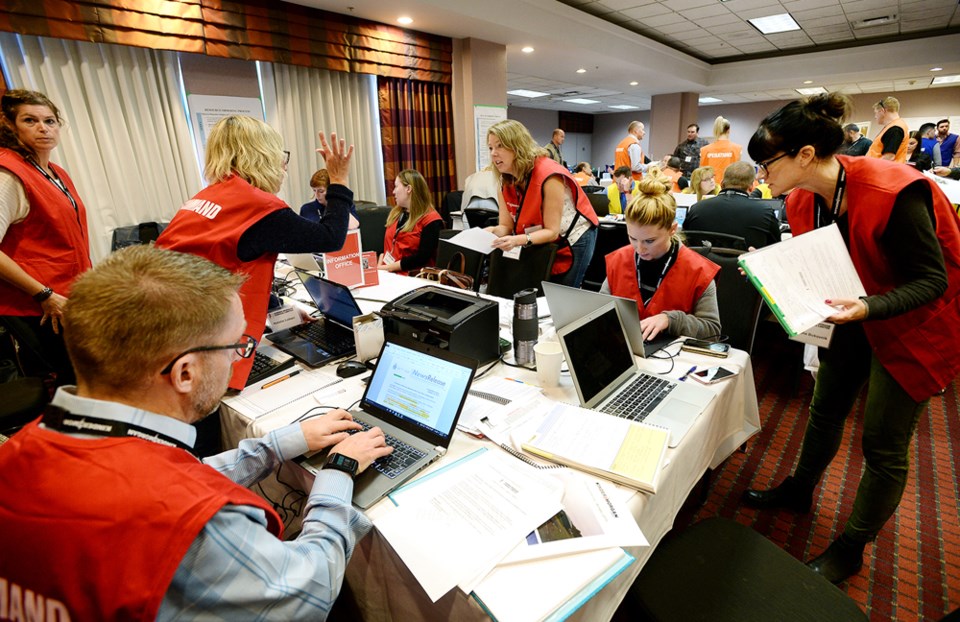Kinder Morgan went through a full-scale emergency response exercise at its Burnaby terminal on Wednesday as part of one of the National Energy Board’s conditions for the Trans Mountain expansion project.
The scenario involved a hypothetical 700-barrell caused by a truck backing into a pipeline manifold.
An incident command post was set up at the Executive Plaza Hotel and Conference Centre in Coquitlam. At the same time, personnel and equipment were deployed at the tank farm.
“The exercise allows people to, one, train in response and, two, to demonstrate their ability to respond (to an emergency),” said the NEB’s Kent Lien.
The incident command post consisted of about 100 people, mostly Kinder Morgan and NEB staff. Representatives from Environment Canada, Transport Canada and various contracting companies were also on hand. Some were “players,” actively involved in the exercise, while others were there to observe and learn.
The room was divided into different sections, with each person wearing a different coloured vest. Blue represented the planning team, yellow meant logistics and green represented the unified command team, to name a few.
The unified command team sets the objectives for the response, according to Lien, and is the overall decision maker. Workflow then trickles down to the rest of the group.
“It’s a very structured response,” he told the NOW.
The first objectives of any response, Lien added, are to stabilize the incident, protect workers and the public, and protect the environment and property.
Throughout the full-day test, a simulator threw in extra scenarios that could come up during a real emergency.
“There could be an injury to a worker during the response. It could be, ‘Oh, we now have potential for wildlife to be impacted that we weren’t aware of.’ It could be a call from the public, noting a concern. It could almost be anything,” said Lien.
Michael Davies, vice-president of operations for Kinder Morgan Canada, said he felt very good about his team’s response, noting the company does about 20 emergency management events a year.
“The company is well-versed in this. It’s very useful to us, not only just in terms of our internal capabilities and maintaining that and continuously training people as they move around and get different experiences in the organization, but it’s a really important opportunity to engage with the other public safety agencies that we will be working with in an incident like this,” he told the NOW. “It’s always better if you’re not meeting these people for the first time in the room.”
Davies said, before the $7.4-billion pipeline expansion project was proposed, there wasn’t as much participation in the mock exercises. However, that has since changed “because of the profile of the project.”
“We get a lot more attention and a lot more people come. That’s great. It’s really good for us because one of the biggest things for us is building those external relationships.”
The NEB will post its evaluation of the mock exercise on its website within 90 days.
The drill is part of condition 136, which asks for a full-scale exercise at the Burnaby terminal.
Construction on the Edmonton-to-Burnaby pipeline is expected to start sometime this month, according to Trans Mountain’s website.



